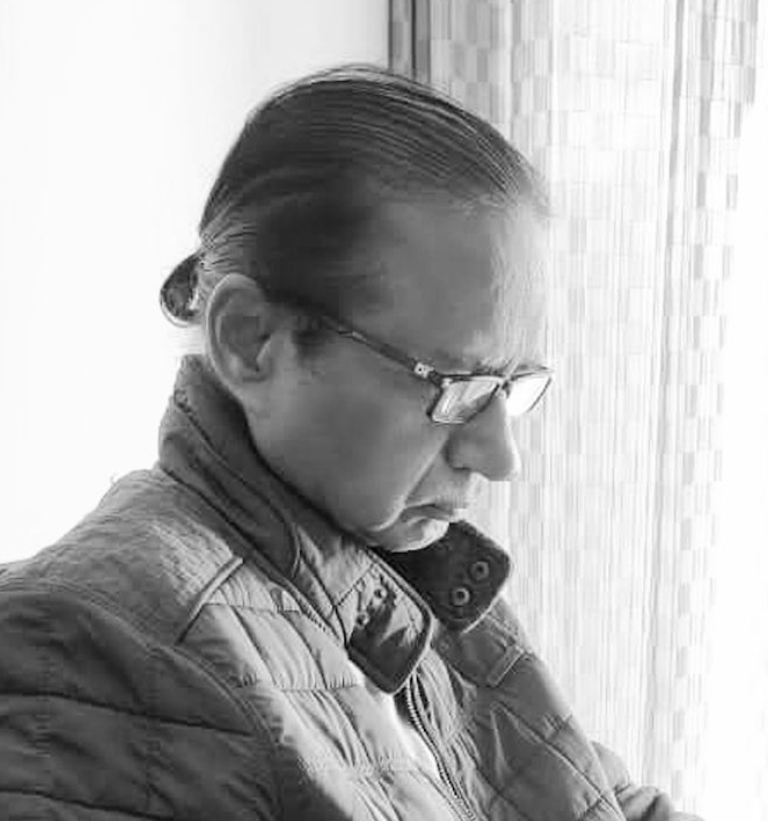Ahmed Jamal Pirzada is a lecturer in economics at Bristol University, UK, and interested in macroeconomics.
In February-March 2022, we had a polite tweet exchange (now X exchange), so rare on the Twitter-space, triggered by his appreciation of Hammad Azhar, Minister of Energy in the incumbent (de facto) government of Pakistan Tehreek-e-Insaf. HA is the son of Mian Muhammad Azhar, former Governor of Punjab, and belongs to an Ashrafiya business family of Lahore.
AJP: Hammad has been one of the few sane voices who is willing to push for what is right: trade with India, deregulating the sugar sector, improving the efficacy of export subsidies, pushing for IGCEP, and now this. None of this gets you brownie points with the status quo but must be done. [Feb 19]
Tweets by Hammad Azhar:
WACOG bill has been passed today by senate as well. It is a historic and long pending reform that will ensure the energy security of Pakistan. We are now able to embark upon the reform of the gas pricing structure, remove anamolies and enhance supplies of imported gas. 1/2 [Feb 17]
This reform is as significant as the approval of IGCEP model for power purchase a couple of months ago. Both historic reforms in power and petroleum sector have been carried out by PTI govt in the last six months. [Feb 17]
I responded to this appreciation thus:
KA: Those who are aboard the Pirates’ Ship know how to appreciate their this or that saying?! [Feb 19]
AJP: What is the pirates’ ship in this case? [Feb 19]
KA: The regime [Feb 19]
AJP: This regime or that will always have similar players playing the game under different guises. Hard to see a sensible alternate other than strengthening the hands of those who are at least willing to try. [Feb 19]
AJP: At worse, they will fail. Still better than continuously failing without even trying. [Feb 19]
KA: Sorry, but that’s the argument that has brought us to this stage. I mean, how to appreciate anything coming from, say, Omar Ayub, who’s part of every government/regime. I mean, their opinion doesn’t matter to them; why should we bother about it? Why should it matter to us? [Feb 21]
AJP: I appreciate the point u r making. It would have been more relevant if political parties were democratic in structure and political loyalty did not imply loyalty to dynasties. Since that is not the case, a citizen doesn’t have many options but to bank of the few sensible voices. [Feb 21]
KA: The democratic structure of the parties and loyalty to the dynasties make no difference. In my opinion, parties are not accountable to the people; that makes a difference to their politics. [Feb 21]
AJP: It makes no difference in wat sense? A dynast taking decisions from allocating tickets to legislating on national issues with no credible threat doesn’t sound inconsequential. In fact, the only credible threat that remains to constrain powers is the possibility of people leaving. [Feb 21]
KA: Democratic structure means nothing because 1) power politics don’t benefit from it; rather, it harms them; 2) political parties and their dynamics are controlled/manipulated by external factors, e.g., the making of PML-Q, PPP-P, etc. [Feb 22]
KA: Dynasties prevail because, again, parties are manipulated from outside. Party elections and democratic decision-making may divide already loosely organized parties. Not justifying what they do. [Feb 22]
KA: I do criticize the political parties, but at the same time, I try to see the things from their standpoint. The most important factor is non-civilian interference that has distorted the political process. [Feb 22]
KA: Though I believe it’s for the political parties to fight against that factor, because constitutionally they have the mandate of governing/ruling given by the people. So they are the culprit since it is they who share powers delegated to them by the people.
AJP: Maybe. But lack of external factors dont lead to non-dynastic politics either e.g. Congress in India & Awami League in Bangladesh. One could also argue tht dynastic parties make the system more vulnerable to external factors since those below cannot rise to top systematically. [Feb 22]
AJP: Also, if democratic structure means nothing then why does loyalty from politicians to the dynast means something? [Feb 22]
KA: Simply because people trust them, such as MNS, BBZ, etc. That’s why dynastic politics survive in Pakistan and elsewhere, e.g., in India. [Feb 23]
AJP: Doesn’t this fall short when it comes to expecting from politicians to be loyal to a dynasty? After all, they could use similar argument to say that they r only responding to changes in public sentiment wen jumping the boat? Hard to see a strong reason to commit to a dynasty. [Feb 24]
KA: Yes, that’s true, and dynastic politics is one important factor, not the sole factor. But somehow in Pakistan, non-dynastic parties with democratic structures, such as JIP, fail to attract larger sections of voters. That makes external factors decisive ones. [Feb 23]
AJP: That is an interesting feature. Perhaps it is also because the smaller more democratic parties also position themselves at the extreme of the ideological spectrum thus undermining any meaningful growth in their support base. [Feb 24]
KA: Yes, of course, they don’t, but they must. Constitutionally and morally, they are bound to follow what they promise in their parties’ constitutions and election manifestos. Again, practically they derive their legitimacy not from the people, but from the external factor. [Feb 24]
KA: Yes, and that may be interpreted as exhibitionistic and in vain, though principled. IMO, the way out is moral and truthful politics, i.e., in an ultimate sense, the constitution is a moral document, i.e., it survives in a moral environment. [Feb 24]
AJP Liked the above tweet, and the tweet exchange concluded.
[March 7, 2022]
